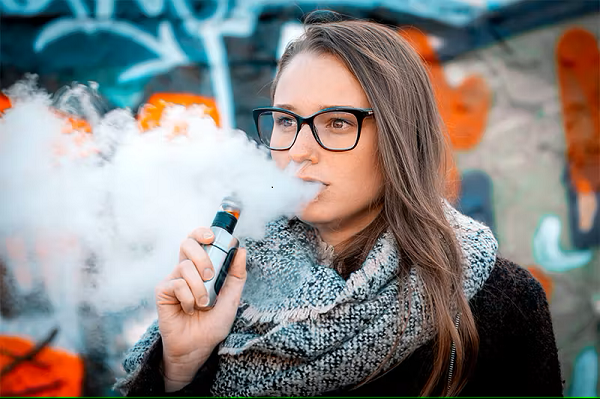Oklahoma will release a list of vaping goods that are permitted for sale on October 1st, providing law enforcement with the necessary data to implement the state's recently enacted partial vape ban. Louisiana is going to start enforcing a similar rule a month from now.
The statutes forbid the sale of goods that do not currently have premarket tobacco applications (PMTAs) under review by the FDA or that have not been given a marketing granted order (MGO) authorizing their sale.
Targets will include vape stores in Oklahoma.
The Oklahoma Alcoholic Beverage Laws Enforcement (ABLE) Commission required manufacturers to submit a document by July 1st, attesting under penalty of perjury that the products listed were available for sale before August 1, 2016 (the FDA's Deeming Rule's effective date) and that a PMTA had been submitted for each product by September 9, 2020, the deadline for PMTA submissions. If the authorized status of a product changes, manufacturers have 30 days to notify the state.
The Oklahoma law was passed by the state legislature in 2021, but last year, proponents of vaping managed to delay its enforcement until 2023. This year's attempts to overturn the legislation or postpone it until 2024 were unsuccessful.
Local law enforcement agencies will target vape businesses that offer bottled e-liquid and any outlet that sells disposable vapes. Selling any product that isn't on Oklahoma's list or making false claims about a product's authorization status will be illegal. That holds true for the other states mentioned in this post as well.
Big Tobacco uses red tape for tiny vapers as a competitive advantage.
Tobacco firms including R.J. Reynolds, the manufacturer of Vuse e-cigarettes, lobbied legislators on behalf of the bill, which was opposed in other states and passed in Alabama, Louisiana, and Utah. The tobacco industry finds it difficult to compete with independent small manufacturers and vape shops, the majority of whom don't provide items from the tobacco industry. The tobacco corporations have a competitive edge because they are wealthy and have sizable, devoted compliance departments, which allow them to jump through legal hoops to sell their goods.
These laws permit the sale of products with pending PMTAs rather than just those with FDA authorization because the two most widely used vaping products found in convenience stores, the Vuse Alto and the JUUL device from Juul Labs, are not FDA-approved for sale but do have pending PMTAs. The purpose of the laws was to give those firms an advantage.
Laws exclusive to PMTAs in Louisiana and other states
In Louisiana, the situation is much the same, although it is worse for customers. The schedule is one month behind Oklahoma's, as the state approved its PMTA-only bill earlier this year. According to the statute, producers must certify that goods supplied in Louisiana adhere to the same criteria as those required by Oklahoma and submit this certification to the state's Office of Alcohol and Tobacco Control (ATC). Additionally, they have to pay an annual charge of $100 for each product that the state lists.
Additionally, the law mandates that vape merchants only purchase goods from wholesalers based in Louisiana, which may significantly reduce the selection of goods available in vape shops. Manufacturers who sell in Louisiana are required to provide the ATC with attestations for every product by October 1.
The PMTA-only legislation in Alabama is similar to the others in that manufacturers are required to pay a $2,000 one-time fee (as well as a $500 yearly renewal fee) to include their items on the state's "ENDS Products Directory." At now, the list comprises more than 1,600 goods.
Though shops are required to keep sales records and be able to verify that the products they sell comply with legal requirements, Utah does not have a publicly accessible list of permitted products. Another strange twist is that a product may have varying nicotine concentration or intensity restrictions based on its PMTA status.
There are no nicotine strength restrictions on products that have FDA marketing authorization. The maximum nicotine content for sealed (closed-system) products with a submitted PMTA (but not authorization) is 59 mg/mL, which is the same as the nic strength in a JUUL. A container of bottled e-liquid with a PMTA (but not permission) submitted may only hold 360 milliliters, and the nicotine content may not be more than 24 milligrams per milliliter.






